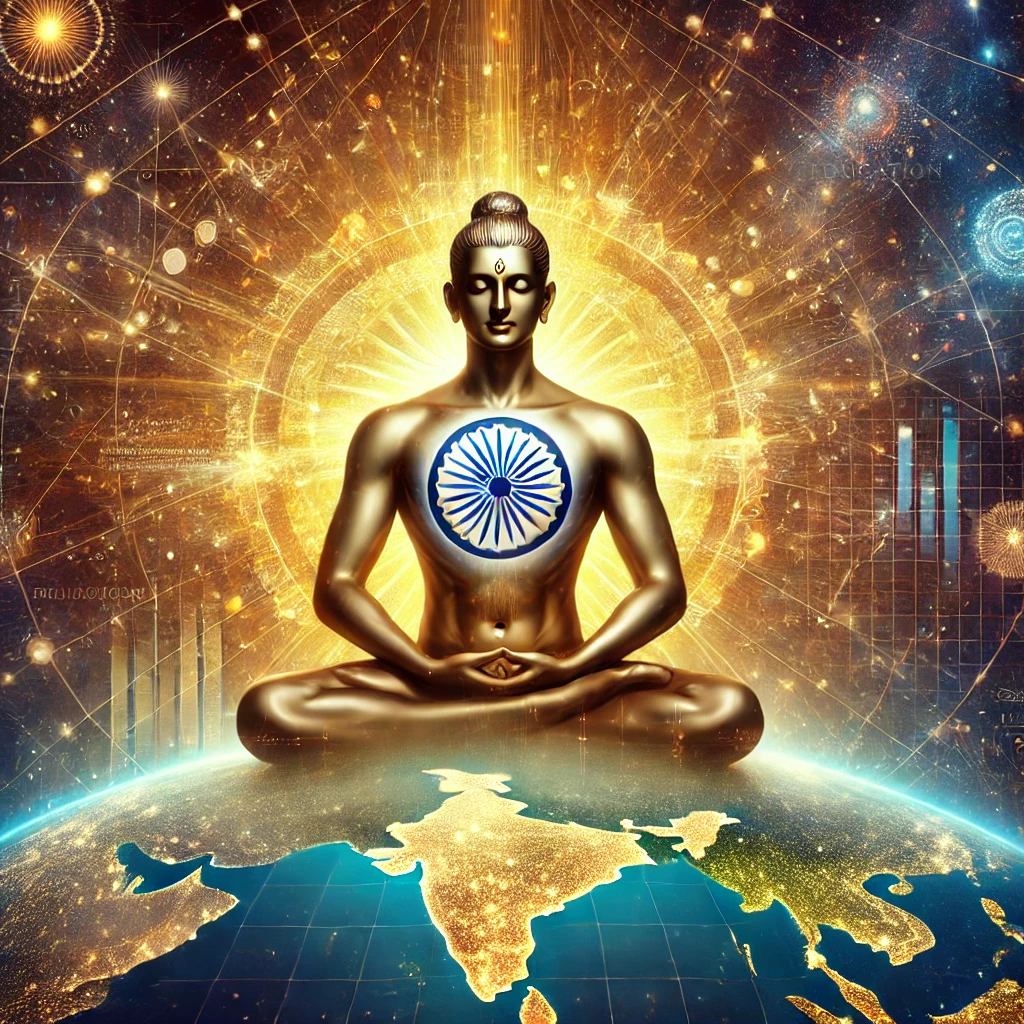The idea of India as a Vishwaguru has often been misunderstood as a pursuit of global dominance. But the truth is, Vishwaguru is not about proving something to the world—it is about becoming something from within. It is about India reaching a state of self-sufficiency, moral strength, and holistic development that naturally inspires others. And this journey begins with Viksit Bharat—a developed India that is not just economically strong but also socially inclusive, technologically advanced, and ethically grounded.
Vishwaguru: A Journey Within Before a Journey Beyond
A true Vishwaguru does not impose its leadership; it earns respect by its very existence. India was once the world’s center of knowledge, philosophy, and innovation—not because it sought validation, but because it focused on internal excellence. From Nalanda and Takshashila to Ayurveda and Yoga, India’s wisdom shaped civilizations without force or conquest.
In today’s world, the meaning of Vishwaguru is deeply tied to Viksit Bharat. To lead globally, India must first uplift itself. The vision of a developed India—where education is empowering, healthcare is accessible, technology is innovative, and governance is transparent—lays the foundation for true global leadership. The stronger our internal framework, the greater our ability to guide the world.
Viksit Bharat: The Pillar of a Credible India
The path to Vishwaguru status is not through power or influence, but through credibility. And credibility comes from development that is visible, sustainable, and inclusive. Viksit Bharat is not just a policy dream—it is a reality we must build where every citizen has access to dignity, opportunities, and a prosperous life.
A nation cannot guide others if its own people struggle. Viksit Bharat means a country that eradicates poverty, bridges the urban-rural divide, and ensures digital and financial inclusion. It means strengthening our industries, empowering our youth with quality education, and nurturing a society driven by innovation and ethics. When India achieves this, the world will naturally look up to it—not because we ask them to, but because we set an example too powerful to ignore.
The Global Ripple Effect: India as a Model Nation
While the essence of Vishwaguru is internal, its impact is inevitably global. A strong, developed India will naturally shape world discourse, influence policies, and contribute to solving global challenges. Today, India’s advancements in space technology, digital infrastructure, renewable energy, and vaccine diplomacy have already positioned it as a key player on the global stage.
India’s journey toward Viksit Bharat also holds immense significance for global stability and progress. A robust economy fosters international trade, technological advancements spur global innovation, and a strong democracy sets an example for governance worldwide. More importantly, India’s deep-rooted values of non-violence, peace, and co-existence offer a counter-narrative to rising conflicts across the globe.
India’s commitment to climate action, sustainable development goals, and digital inclusion is also a testament to how internal progress fuels global impact. As the nation strengthens its internal infrastructure and governance, its global credibility will only rise, enabling India to take a central role in institutions like the United Nations, G20, and BRICS. A truly Viksit Bharat will not just uplift its citizens but will also offer solutions to challenges faced by the world.
But the true test of leadership is not just economic or technological success—it is the ability to create a society that thrives on justice, equality, and progress. If India can create a model of development that is inclusive, sustainable, and ethical, the world will not just admire us—they will follow us.
Cultural and Philosophical Strength: India’s Soft Power
Beyond economics and technology, India’s cultural and philosophical heritage plays a pivotal role in its global influence. Concepts like Vasudhaiva Kutumbakam (the world is one family) and Sarve Bhavantu Sukhinah (may all be happy) reflect India’s vision of universal well-being. Yoga, Ayurveda, and meditation have already become global movements, demonstrating how India’s ancient wisdom provides answers to modern problems.
As Viksit Bharat emerges, this soft power will gain even more recognition. A nation that thrives internally—balancing modernity with tradition, economic growth with ethical responsibility—becomes a beacon of hope for the world. India’s civilizational strength will continue to shape global perspectives, not through coercion, but through inspiration.
Conclusion: The Power of Becoming Before Leading
The journey to Vishwaguru is not about external validation—it is about internal transformation. Viksit Bharat is not just a milestone; it is the very foundation of this transformation. When India rises, not just in GDP figures but in the quality of life of its people, in the strength of its institutions, and in the depth of its knowledge, the world will naturally turn to it for leadership.
A tree does not grow tall by stretching its branches first; it strengthens its roots. Similarly, India’s destiny as Vishwaguru depends on how deeply we nurture our own potential. When we achieve Viksit Bharat, we won’t need to declare ourselves a leader—the world will already know.
The essence of India’s future lies in its ability to build a society that is progressive yet rooted, innovative yet ethical, ambitious yet inclusive. As India transforms itself into a Viksit Bharat, its leadership will emerge naturally, inspiring the world not through imposition, but through its sheer example. And that, in its truest sense, is the ultimate realization of Vishwaguru—a leader that does not demand recognition but earns it through the strength of its inner development.
